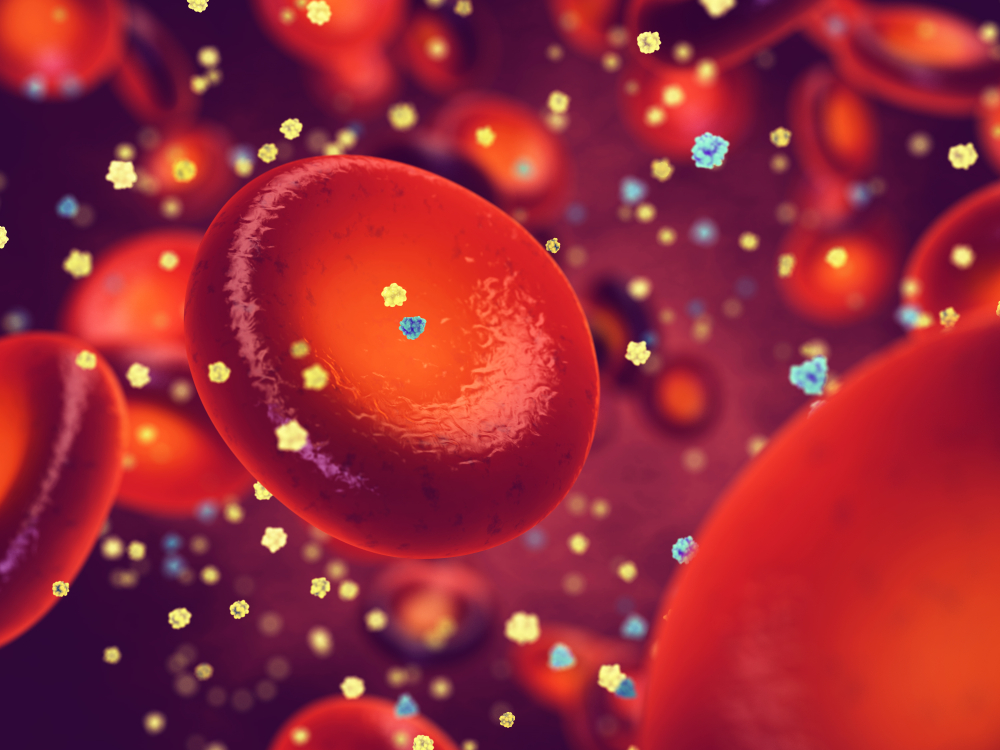
What is being tested?
The complement system is a set of circulating blood proteins that work together to promote immune and inflammatory responses. Their principal role is to destroy foreign substances like bacteria and viruses. The nine primary complement components are those designated as C1 through C9. They are assisted and regulated by several subcomponents and inhibitors.
The complement system is part of the body's innate immune system. Unlike the acquired immune system, which produces antibodies that target and protect against specific threats, the innate immune system is non-specific and can quickly respond to foreign substances. It does not require advance exposure to an invading microorganism or substance and does not maintain a memory of previous encounters. As part of the innate immune system, the complement system has evolved to recognise antigen-antibody complexes (immune complexes) as well as certain structures and polysaccharides (complex carbohydrates) found on the outside membranes of microorganisms and other foreign cells.
Complement activation may be initiated in several different ways. These are termed classical, alternative or lectin pathways. However, the final product from all activation pathways is the same - the formation of the Membrane Attack Complex (MAC). Complement activation causes several things to happen:
Complement proteins both promote and regulate these activities. Inherited or acquired deficiencies or abnormalities in one or more of the complement components may adversely affect the integrity and function of the immune system. Deficiencies may also arise because of decreased production or increased use of one or more complement proteins.
These tests measure the quantity or the function (activity) of complement proteins in the blood. Complement components may be measured individually and together to determine whether the system is functioning normally. C3 and C4 are the most frequently measured complement proteins. Total complement activity (CH50, or CH100) can be measured if the doctor suspects a deficiency that is not measured by C3 or C4. CH50 measures the function of the complete classical complement pathway, C1 - C9. If this measurement is outside the normal range, then each of the 9 different complement levels can be measured individually to look for hereditary or acquired deficiencies.
Complement control proteins such as Factors H and I can be the targets of autoimmunity or be mutated and cause hereditary disease. These syndromes may lead to aHUS. They aren’t useful in diagnosis but in determining the cause of the aHUS.
How is it used?
C3 and C4 are used to determine whether deficiencies or abnormalities in the complement system are causing, or contributing to, a patient's disease or condition. Total complement activity (CH50 or CH100) may be ordered to look at the integrity of the entire classical complement pathway. Other complement components are ordered as needed to look for deficiencies. Complement proteins can be the target of autoimmunity and lead to atypical haemolytic uremic syndrome (aHUS). Specific testing can be performed to investigate this.
Complement testing may be ordered to help diagnose the cause of recurrent microbial infections, angioedema, or inflammation. It may be used to help diagnose and to monitor the activity of acute or chronic autoimmune diseases such as systemic lupus erythematosus (SLE). It may be tested and monitored with immune complex-related diseases and conditions such as: glomerulonephritis (a kidney disorder), serum sickness, rheumatoid arthritis, and vasculitis (inflammation of a blood vessel). When immune complexes form, complement helps to clear them from the blood, making levels of complement low.
When is it requested?
Complement testing may be ordered when you have unexplained inflammation or oedema, or symptoms of an autoimmune disorder such as SLE. It may also be ordered when your doctor suspects that you may have an immune complex-related condition and s/he wants to check the status of your complement system.
C3 and C4 levels are the most frequently ordered but others, such as C1 inhibitor, may be ordered when other deficiencies are suspected. Individual complement components may be ordered when the total complement activity (CH50 or CH100) is abnormal, to help determine which of the components are deficient or abnormal.
Complement components may be ordered in the investigation of aHUS.
When an acute or chronic condition has been diagnosed, complement testing may be used to help give a rough idea of the severity of the condition (with the assumption that the severity is linked to the decrease in complement levels). Complement testing may also be ordered occasionally when your doctor wants to monitor the current activity of your condition.
What does the result mean?
Complement levels may be decreased due to a hereditary deficiency (relatively rare) or due to increased consumption. Hereditary deficiency in one of the complement proteins will usually lead to a high frequency of recurrent microbial infections or autoimmune disease. If the deficiency is due to an underlying acute or chronic condition, complement levels will usually return to normal if the underlying condition can be resolved.
Decreased complement levels may be seen with:
Complement protein levels are usually increased, along with other unrelated proteins called acute phase proteins, during acute or chronic inflammation. These all usually return to normal when the underlying condition is resolved. However complement proteins are rarely measured in these conditions, compared to the widely ordered C-reactive protein (CRP) and the relevance of their measurement in these situations is not reviewed here.
Is there anything else I should know?
Increased and decreased complement levels will not tell your doctor what is wrong, but they will give him or her an indication that the immune system is involved with your condition. Complement levels can be increased with inflammation, rising before other markers such as the erythrocyte sedimentation rate (ESR) and C-reactive protein (CRP).
Common questions
It includes:
What is Pathology Tests Explained?
Pathology Tests Explained (PTEx) is a not-for profit group managed by a consortium of Australasian medical and scientific organisations.
With up-to-date, evidence-based information about pathology tests it is a leading trusted source for consumers.
Information is prepared and reviewed by practising pathologists and scientists and is entirely free of any commercial influence.